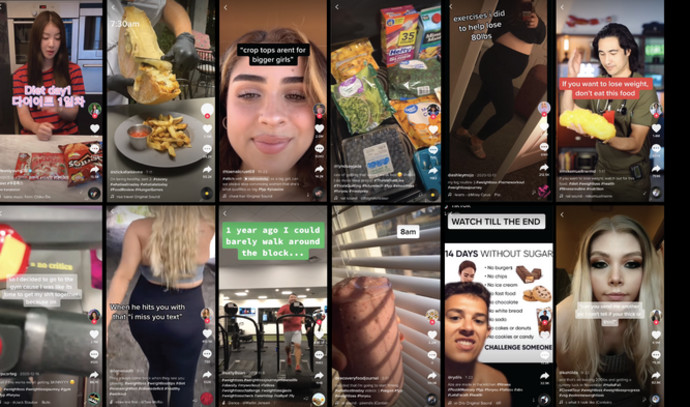Why people shouldn’t rely on TikTok for health tips – study

Social media users wanting to improve their health or learn more about their body may not want to look to TikTok influencers for the answers, according to a new study published last week.
The peer-reviewed article, published in the Journal of Health Communication, found that influencers tend to reshare the same health content on sexual health, diet, and exercise.
“Not surprisingly, we saw a great deal of role model appeals as influencers have a strong voice on this platform,” said Nicole O’Donnell, the lead author of the study and an assistant professor of communications at Washington State University.“The issue we have with this from a health communication perspective is that most of these videos weren’t providing attainable steps for behavior change but rather sharing aesthetic details of what is often a highly unobtainable lifestyle.”
Why do the researchers think the information is recycled by influencers?
As TikTok is comparatively newer than platforms like Facebook and X, researchers are still trying to understand user patterns and content. This is why the researchers chose to review 400 health-related videos on the platform.
The 400 videos were found and selected by the use of the ‘#EduTok” tag.
Most of the videos analyzed fell into the categories of mental health, diet, exercise, or sexual health. The researchers theorized that the topics had been selected based on TikTok’s younger audience. Mental health videos had lower levels of engagement and topics that were deemed more relevant to teenagers, like bullying, were absent from the tagged content.
Role model videos, featuring famous celebrities talking about health and lifestyle, had the highest levels of engagement. Shocking videos aiming to shock or scare people also did well in terms of analytics. However, despite the relative success of the content, the information lacked realistic behavioral changes and important information.
“Almost 50% of the videos had role model appeals in them,” said Sultana Ismet Jerin, a member of the research team. “Our results indicate that audiences highly engage with personal stories. The emotional appeal of the content is also a factor that influences audience engagement. In another study, we are specifically looking at emotional appeals of mental health messaging to learn more about engagement as mental health videos appeared the least engaging although being the most frequently covered health topic in EduTok videos.”
The worrying trend of self-diagnosis
The researchers also found a trend that they described as “problematic”: Many health influencers have released videos encouraging self-diagnosis of mental health conditions directed at young audiences.
“Videos of people self-diagnosing their depression, anxiety or other issues related to mental health tended to have very high engagement which is a problematic trend that we would hope to have some public messaging about in the future,” said O’Donnell. “We plan to look more closely at the topic of mental health in general and the emotional appeals that creators are using.”
“Authentic stories about people’s lives tended to generate a lot more engagement than a person in a white coat sharing their opinion,” O’Donnell said. “And so, one strategy we would recommend is to have health professionals find ways to share people’s authentic stories while also providing credible and reliable information.”




